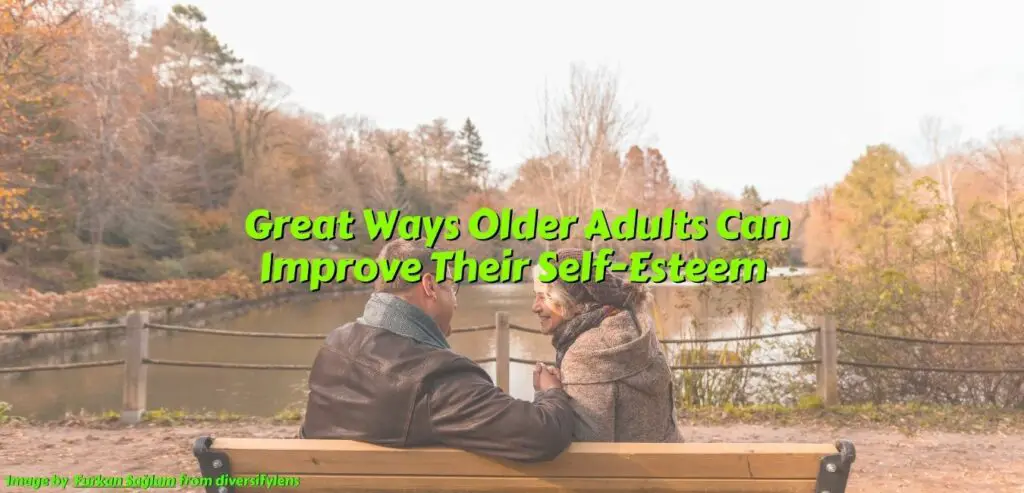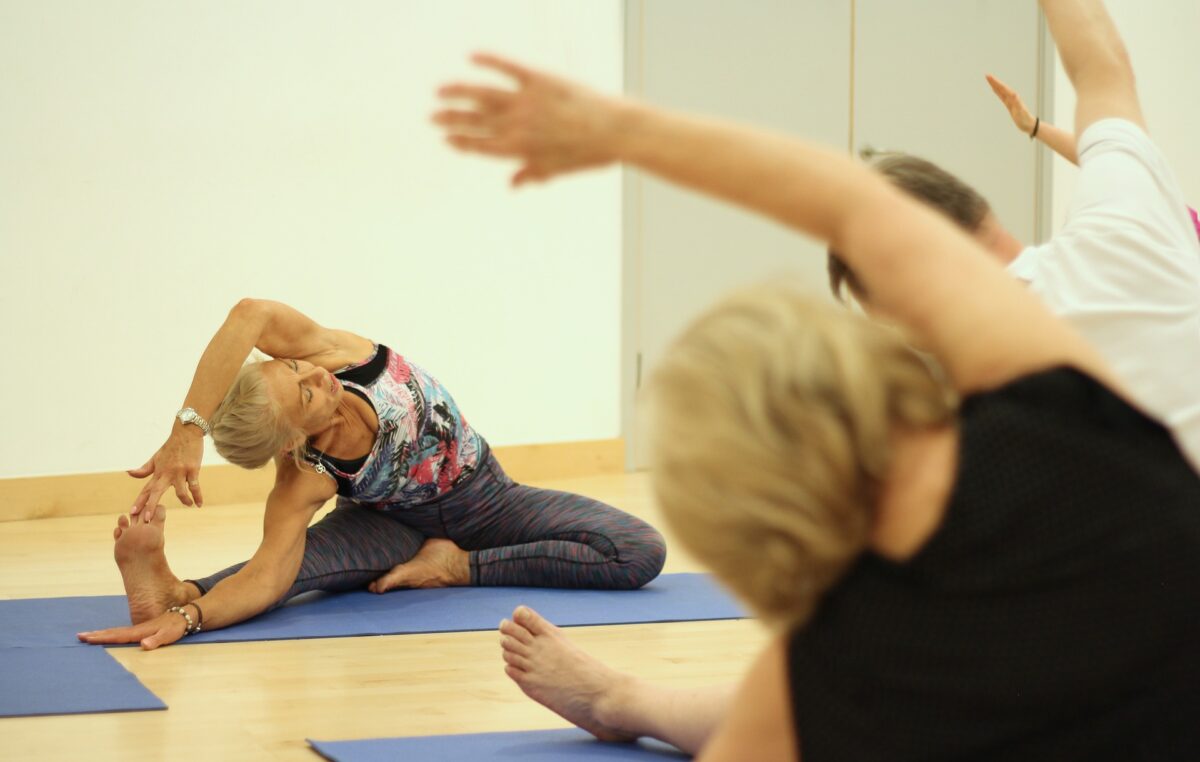Nurturing self-esteem may be hard for anyone, regardless of age. However, as we get older experiences and circumstances can work to erode and eat away what we’ve worked so hard to build on our entire lives.
During our working years, we’ve achieved certain milestones such as promotions, a good family life, close relationships, solid income, and know our value within the societal structure.
As we age, kids move away, relationships change or people pass, retirement happens, health challenges might occur, and everything becomes very different. We’re no longer sure of who we are and this can bring about anxiety and uncertainty.
So, what are 7 great ways older adults can improve their self-esteem? Seven important aspects which should be taken into consideration are:
According to Mind, self-esteem is how we value and perceive ourselves. In many respects, it's closely related to self-confidence. Aging tends to undermine how we feel about ourselves and can impact our interactions with others.
1. Cultivate Strong Social Connections
Having strong and meaningful relationships can boost confidence as well as overall happiness. Family and friends become doubly important once you leave work and no longer have those connections with co-workers and people you previously saw on a daily basis.
For anyone who has struggled with self-image, keeping friends and meeting/making new ones becomes even harder. For these individuals, finding a group who participates in something they enjoy can help to bridge this gap.
Our article, surefire ways to make friends in retirement, outlines several strategies to expand and strengthen your social connections. Perhaps most importantly, do you have the qualities to attract others such as being upbeat, likeable, and non-judgmental?
Then you’ll want to get out there and meet others. This could include signing up for a course, volunteering or participation in a community activity. The important thing is to find something you enjoy or have always wanted to try. This ensures you’ll stick with it and, who knows, you might actually end up enjoying meeting people and making new friends.
As important as friends and family are, remember to avoid anyone who makes you feel bad about yourself, is a negative influence, or puts a lot of expectations on your relationship. Surround yourself with supportive, upbeat people who accept you just the way you are.
2. Self-Care and Looking Good
It’s a proven fact taking pride in your appearance is a major step in building self-esteem. This doesn’t necessarily mean dressing like you’re going to a ball or formal business meeting before leaving the house.
After retiring, it’s easy to slip into the “comfy clothes” routine. You’re no longer on the clock - having to wake up and get ready for work. Even daily showers and basic hygiene often fall by the wayside. You can always identify one of these retirees as they stroll through the supermarket in their sweat pants looking like they just got out of bed.
Your appearance speaks volumes about you and how others view you. You’ll also feel better about yourself and your self-confidence improves when you know you’re looking good. You might walk a little taller or smile a little more because you’re feeling positive and upbeat.
3. Stay Physically Active and Eat Healthy
As well as taking care of your hygiene and physical appearance, staying active and eating healthy is another way how older adults can improve their self-esteem. It’s all about taking care of your body and whole person so you’re presenting your “best you” to the world.
Making health and well-being a priority can give you a sense of confidence and control over your life as you’re actively doing things to ensure levels of strength, flexibility, resiliency, and positivity. Exercise releases endorphins which are responsible for making you feeling good.
As we age, our nutrition needs changes. Having a diet more in tune with your requirements is essential. It’s about putting in your body what’s best to maintain bone structure, muscle mass, and energy levels.
The bottom line is, the better you physically feel the more likely you’ll have the confidence and energy to go out and mingle with people and community.
4. Keep Your Mind Sharp
No one likes to feel stupid!
However, if we don’t keep our minds sharp that’s exactly how we’ll feel which plummets our self-image. In fact, this might be even more critical than physical activity especially with the potential threat of dementia.
When we were working, our minds were “firing on all cylinders”. After getting home, it was time to relax and watch a favorite TV show. Television is a great way to unwind; however, it does little to stimulate cognitive functioning.
One of the most popular past times for retirees is watching TV. According to Statista, the average American over the age of 65 watches four hours a day. This might be explained as it’s entertaining and passes the time. Yet, we need to make an effort to ensure our brains don’t stagnate.
Some cognitive activities include:
Basically, anything which challenges the mind. Besides traditional activities, many of these also have online variants as we share in our articles on best card games and best free online games
Creative activities such as drawing, painting, pottery, art, and dancing have been shown to not only reduce stress and anxiety, they also keep the mind fit, elastic, and running in tip-top shape.
For more information on creative activities, see our post awesome benefits of art and painting for older adults.
5. Avoid Negativity Especially Age Related
Another important way older adults can improve their self-esteem is to avoid, as much as possible, all the negativity out there. Whether this be the news or social media, these negative messages begin to change how we perceive the world.
Quite bluntly, the news is sensationalized and filled with horrific acts such as the latest mass shooting or other violent crime. Studies have revealed older people can internalize this, believing the world is less safe and even avoid going out.
Ageism is equally corrosive. Unlike cultures who respect their elders, the North American society doesn’t seem to value age, experience, or knowledge. Sadly, there are numerous examples from the younger generation who blame us for all the societal problems and perceive us as a drain on society.
Without a doubt, it’s easy to get sucked into this vortex of negativity and too many folks have gone down that rabbit hole. As sad as it sounds, sometimes it feels near impossible to be around positive upbeat people. And, they always say “misery loves company”.
The key is to minimize all this negative messaging and focus on the good. This comes down to living the life you want and enjoying yourself.
6. Keep Current Especially on Important Matters
Most of us are, at least, somewhat guilty of getting stuck in a routine and becoming somewhat complacent. In other words, many of us don’t pay proper attention to important matters. This can leave us feeling less in control which can negatively impact self-esteem.
Technology and the world continue to evolve at astonishing rates and many older adults are falling behind. They simply can’t keep up or may have given up. This can impact their ability to access, government services, benefits, or even order products or services online.
Even more troubling are the sheer multitude of scams specifically targeting older people. Those who let their guard down, run the risk of being defrauded for potentially thousands of dollars (or more). They become victims with little or no recourse to recover their money.
Another example is managing our life savings and investments. At this stage in life, most of us lean toward “safe” investments which typically yield lower returns. Further to this, financial advisors generally recommend conservative portfolios (often with high management fees). At the end of the day, inflation might exceed returns thereby eroding these folks’ financial future.
Educating yourself and taking an active interest in your investments protects your future and bolsters self-confidence/esteem. It’s about keeping current and paying attention to important matters.
7. Maintain a Sense of Independence
Maintaining a sense of independence is another way older adults can improve their self-esteem. As we get older, it can sting our pride when we can’t do everything ourselves. The reality is everything becomes more difficult as we age.
This can manifest itself as reduced vision or hearing, low energy levels, and assorted aches and pains. Mobility or health issues can further compound everything. For some folks, everyday chores such as cooking, cleaning, or getting out of the house may become daunting or near impossible.
All this threatens our cherished sense of independence. Rather than dwelling on it, a more positive approach is to realistically evaluate our capabilities and determine the best means of addressing the situation.
This is when it makes sense to have a discussion with family and friends. Perhaps a little assistance such as a house cleaning service or having some meals delivered is all that’s necessary. Companies specializing in home care could be another option for those with a greater need.
Alternatively, downsizing and moving into a 55+ community might be best in the long run. Especially as these facilities promote greater social interaction and have a wide range of activities.
Our article, benefits of 55+ communities, goes into greater depth on the many advantages. The flip side is there are considerations to be aware of which the disadvantages of retirement communities expand upon.
The most important part is addressing what’s required to maintain a sense of independence. Unfortunately, far too many older adults let this slide not only degrading their quality of life, but also how they view themselves.
Closing Thoughts on How Older Adults Can Improve Their Self-Esteem
As we age, it’s more important than ever before to work on our self-image to remain positive and upbeat. Anyone who lets it slide might find themselves mired in self-doubt with dwindling confidence.
As previously mentioned, self-esteem is how we value and perceive ourselves. As such, there are many factors which influence our perceptions. Social connections with supportive family and friends cannot be understated.
How we look, keeping physically and mentally active are also prerequisites to maintaining a positive self-image. Other aspects include minimizing negativity, keeping current, and addressing important matters. Finally, it’s about preserving a sense of independence.
Like so many things in life, it’s not always easy. But certainly, worthwhile when it comes to setting the stage to enjoy the best retirement possible.



Its like you read my mind. You appear to know a lot about this like you wrote the book in it or something. I think that you could do with some pics to drive the message home a little bit but instead of that this is fantastic blog An excellent read. I will certainly be back.